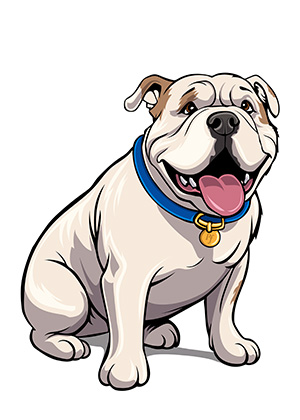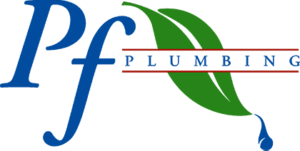Winston-Salem Drain Cleaning
With 30 years of experience in residential plumbing, PF Plumbing is dedicated to providing efficient, reliable, and safe solutions for all your drain cleaning needs. Our commitment to exceptional customer service and satisfaction sets us apart as the trusted choice for homeowners and businesses alike.
Professional Winston-Salem Drain Cleaning
Effectively Unclogging Drains Since 1985
Drains can be clogged suddenly, such as when an object is flushed down the toilet or dropped down the drain. They can also happen gradually over a period of time due to the buildup of food scraps, hair, and other debris. At PF Plumbing, our experienced plumbers offer drain cleaning in Winston-Salem and solve all types of clogs.
Routine drain cleaning is crucial in preventing clogged drains and potential damage to your plumbing system. Over time, debris, grease, and other materials can accumulate in your pipes, leading to slow drainage, unpleasant odors, and even severe blockages. By scheduling regular drain cleaning with a professional plumber, you can ensure the longevity and efficiency of your plumbing system, saving you time and money in the long run.
We utilize advanced technology and professional solutions to deliver top-notch drain cleaning services and complete customer satisfaction. Our team is skilled in methods such as hydrojetting and augering, which are designed to clear even the most stubborn blockages safely and effectively. Hydrojetting involves using high-pressure water jets to remove debris and buildup from your pipes, while augering employs a specialized tool to break up and remove clogs. These cutting-edge plumbing services ensure that your drains are thoroughly cleaned without causing damage to your plumbing system.
Signs You Need Professional Drain Cleaning
It’s essential to recognize the signs that indicate the need for professional drain cleaning. If you notice slow drainage, persistent foul odors, or frequent clogs, it’s time to call in the experts. Ignoring these signs can lead to more severe plumbing issues, including pipe damage and costly repairs. Our team at PF Plumbing is ready to assess your situation and provide the necessary solutions to restore your drains to optimal condition.
Why Choose Our Drain Cleaning Services
Choosing PF Plumbing for your drain cleaning services comes with numerous benefits. Our experienced technicians are trained to handle a wide range of plumbing issues, ensuring that your drains are in capable hands. We prioritize safety and efficiency, using the latest technology to deliver results that exceed your expectations. Additionally, our commitment to customer satisfaction means that we go above and beyond to ensure your experience with us is positive and stress-free.
We Offer Emergency Drain Cleaning Services and an Easy Booking Process
Plumbing emergencies can happen at any time, which is why PF Plumbing offers emergency services to tackle unexpected issues promptly. Our team is available to respond to your needs, providing quick and practical solutions to minimize disruption to your home or business. Booking our services is easy and convenient. Simply contact us via phone at (336) 439-3040 or through our website to schedule an appointment at a time that’s convenient.
If your drains are empty or have standing water, call PF Plumbing today at (336) 200-8928 to schedule a drain cleaning service in Winston-Salem!
Accurately Detecting the Location of Drain Clogs
At PF Plumbing, we are skilled at troubleshooting blocked drains. We use a combination of time-tested methods and the latest technology to pinpoint the location of clogs in kitchen and bathroom sink drains, tub drains, toilet drains, and laundry drains. Once we identify the source and location of the clog, we work to solve the underlying problem and bring lasting results. We will explain the issue and provide upfront pricing for your drain cleaning or repair service.
Completely Removing Clogs
Have you used a store-bought drain cleaner in the past? Recurring clogs may be annoying and inconvenient, but the continued use of commercial drain cleaning liquids can be damaging, too. Our plumbing service technicians have the experience, equipment, and tools to eliminate tough clogs and keep them from coming back. We have provided effective professional drain cleaning in Winston-Salem for more than 30 years.
- Apparent blockages
- Keep clogs from returning
- Eliminate odors caused by food and other debris in the drains
As with vehicle maintenance and other home maintenance tasks, regular drain cleaning can help keep your drains clear and prevent unexpected problems in the future. We can recommend a schedule for regular drain cleaning to ensure that your drains continue to work reliably.
Related Reading:

Read our Client Reviews
The best service ever, you should give classes to other contractors.
Drain Cleaning FAQ
Why do my drains keep clogging?
There could be several reasons why your drains keep clogging. Some common causes include:
- Accumulation of debris: Over time, debris such as hair, food particles, grease, soap scum, and other substances can build up in your drains, leading to clogs. This is especially common in bathroom drains, kitchen sinks, and shower drains.
- Incorrect usage: Incorrect usage of drains can also cause clogs. For example, flushing non-flushable items down the toilet, pouring grease or oil down the kitchen sink, or not using a drain filter in your shower or bathtub can result in backed up drains.
- Tree roots: Tree roots can infiltrate your sewer pipes and cause blockages. Roots are attracted to the moisture in the pipes and can grow into them, leading to recurring clogs and backups.
- Aging pipes: Over time, pipes can degrade and develop cracks or breaks, leading to clogs. This is especially common in older homes with aging plumbing systems.
- Hard water deposits: If you have hard water, minerals such as calcium and magnesium can build up inside your pipes, narrowing the space where water can pass through and resulting in slow drains.
- Poor pipe installation: If pipes are not installed properly or have sharp bends or angles, it can cause debris to accumulate and result in clogs.
- External factors: Sometimes, external factors such as weather conditions, flooding, or construction work in the vicinity of your property can also cause drains to clog.
How can I prevent drain clogs?
To prevent clogs, it’s important to practice good drain maintenance habits, such as using drain filters, avoiding flushing non-flushable items down the toilet, and regular cleaning of drains using appropriate methods. If you continue to experience persistent drain clogs, it may be best to consult a professional plumber to identify and address the underlying cause.
What Should You Avoid Putting Down the Drain?
Maintaining a smoothly running plumbing system is a priority for any homeowner, and one key aspect of this is understanding what should never be introduced into your drains. Avoiding certain items and materials can prevent clogs, backups, and costly plumbing repairs. Here’s an in-depth look at what you should steer clear of when it comes to your drains:
- Grease and Oil: Pouring grease or oil down the drain may seem convenient, especially after cooking, but it’s a common cause of blockages. Over time, grease and oil can solidify, adhering to the walls of your pipes, and gradually narrowing the passageway for water to flow through. To dispose of grease and oil properly, let them cool and then place them in a container for later disposal in the trash.
- Food Scraps: While it’s tempting to wash food scraps down the kitchen sink, it’s a practice that should be avoided. Large food particles, like fruit peels, coffee grounds, and eggshells, can accumulate in your pipes and create obstructions. Instead, use a strainer in your sink to catch food debris, and dispose of it in your compost or trash.
- Fibrous Materials: Stringy vegetables, such as celery or corn husks, can be particularly troublesome for drains. These fibrous materials have a tendency to tangle within the pipes, impeding the smooth flow of water. Always dispose of fibrous waste in your trash or compost bin.
- Paper Products: Flushing paper towels, wet wipes, and feminine hygiene products down the toilet might seem convenient, but it’s a bad idea. These items don’t break down easily like toilet paper, which can lead to clogs and sewer backups. To avoid this issue, dispose of them in a proper waste bin.
- Chemicals: Harsh chemicals, including drain cleaners and paint thinners, should never be introduced into your drains. While they might temporarily solve a clog issue, these chemicals can corrode your pipes over time, leading to costly repairs. Instead, consider using natural or enzymatic drain cleaners or seek professional plumbing assistance when dealing with stubborn clogs.
- Coffee Grounds: Coffee grounds might seem harmless, but they can accumulate in your pipes and create blockages. It’s best to dispose of coffee grounds in the trash or use them for composting.
Are liquid drain cleaners safe for drains and pipes?
While liquid drain cleaners can be effective in clearing some clogs, they can also pose risks to your drains and pipes. Many liquid drain cleaners are highly caustic and contain harsh chemicals that can cause damage to your plumbing system, especially if used improperly or frequently. Here are some considerations:
- Chemical drain cleaners are corrosive to pipes. Most liquid drain cleaners contain corrosive chemicals, such as sulfuric acid or sodium hydroxide, which can eat away at pipes, especially if they are made of older or weaker materials like PVC, rubber, or corroded metal pipes. This can lead to pipe damage, leaks, or even complete pipe failure over time.
- Chemical drain cleaners are harmful to the environment. Liquid drain cleaners contain toxic chemicals that are harmful to the environment. When these chemicals are flushed down the drain, they can end up in rivers, lakes, and oceans, posing a risk to aquatic life and the environment.
- Chemical drain cleaners are are a health hazard. Liquid drain cleaners can be toxic and pose health hazards if ingested, inhaled, or come into contact with skin or eyes. They can cause burns, respiratory irritation, and other health issues. It’s important to follow the manufacturer’s instructions and use appropriate protective measures when handling drain cleaners.
- Chemical drain cleaners are only temporary solutions. Liquid drain cleaners may provide a temporary solution to a clog, but they often do not address the underlying cause of the clog. If the clog is due to a more serious issue, such as tree roots or a damaged pipe, using drain cleaners may only provide temporary relief and the issue will likely recur.
- Chemical drain cleaners are carry a risk of overuse. Frequent or excessive use of liquid drain cleaners can actually exacerbate the problem by causing damage to pipes and creating a cycle of dependence on drain cleaners. This can lead to more frequent clogs and increased plumbing repair costs in the long run.
It’s generally recommended to use liquid drain cleaners sparingly and as a last resort, following the manufacturer’s instructions carefully, and considering alternative methods such as using a plunger, a drain snake, or seeking professional help from a licensed plumber for persistent or recurring clogs. Preventive measures like regular drain maintenance, proper disposal of grease and debris, and avoiding flushing non-flushable items down the toilet can also help prevent clogs in the first place.
Get Started with Expert Drain Cleaning Today
Ready to tackle your drain issues with the help of experienced professionals? Contact PF Plumbing today at 336-439-3040 or visit us online to schedule your drain cleaning service. Our friendly team is here to assist you with all your plumbing needs, ensuring your satisfaction every step of the way. Trust us to deliver the efficient and reliable solutions you deserve.
Cooper & His Crew Are Ready to Help
Call us today at (336) 200-8928 or complete our form below
"*" indicates required fields
